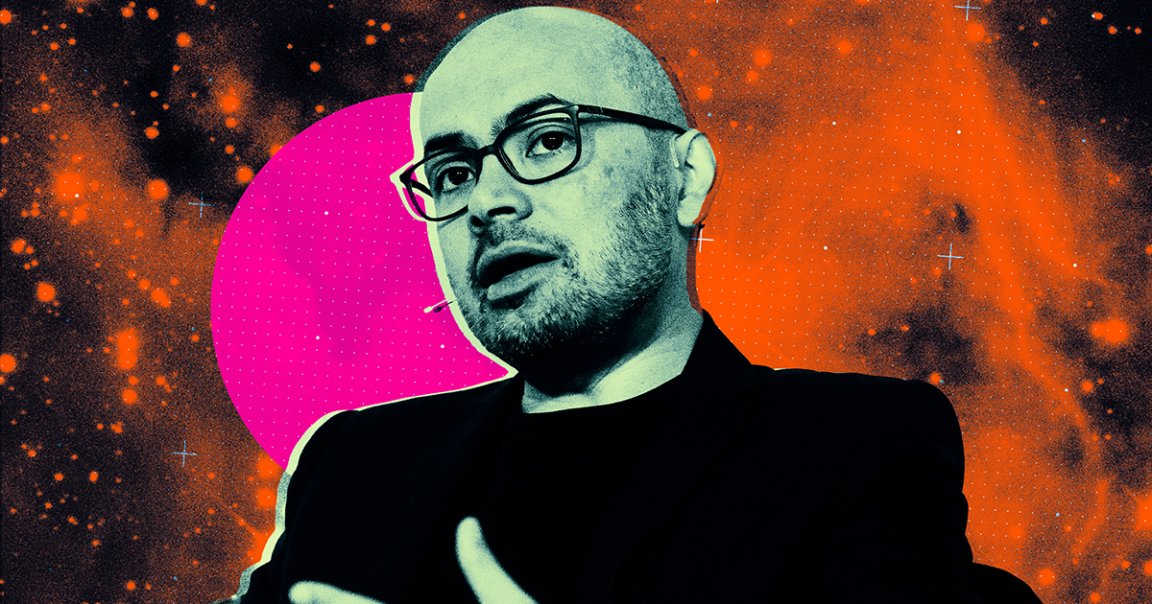
In the age of artificial intelligence, CEOs have ranked among the tech’s biggest cheerleaders.
Drawing on sci-fi tropes and ill-defined industry terms, the pitch usually involves a confident prediction, like that humans and AI will learn to live in “peaceful coexistence” — just imagine the alternative! — and an arbitrary timetable, like that AI will result in a doomsday scenario by 2027 (unless, that is, lawmakers give these massive tech firms carte blanche to do whatever they want.)
And unlike previous tech hype cycles like Web 3, AI’s most vocal champions are often respected industry leaders and mainstream media pundits. For a perfect example, look no further than Google’s Demis Hassabis, CEO of DeepMind, the tech giant’s British-American AI research lab.
Hassabis, who has achieved knighthood as well as a Nobel prize, recently claimed that there’s a “50 percent chance” of reaching “artificial general intelligence” (AGI) — vaguely understood as the point when AI reaches or exceeds human-level intelligence — within the next 5 to 10 years.
If this comes to pass, the AI tycoon explains in an interview with Wired, “then it should be an era of maximum human flourishing, where we travel to the stars and colonize the galaxy. I think that will begin to happen in 2030.”
Sure, Hassabis is a smart guy. But think that through for a minute.
Suppose that the tech industry actually does invent AGI within the next year, which most experts agree is wildly far-fetched. And then imagine that this newly-born AGI instantly invents a way for spacecraft to travel at the speed of light and sustain its inhabitants indefinitely, and manages to build and launch one of those advanced ships immediately.
The remaining four years before 2030 wouldn’t even give enough time to reach the closest star system, Proxima Centauri, which is over four light-years away. And even if it somehow could reach the closest star to the Sun, our Milky Way galaxy is 100,000 light-years in diameter.
It’s a ringing exemplar, in other words, of smart people getting swept up in hype and making ludicrously over-optimistic predictions.
In Hassabis’ telling, by the way, AGI will pull it all off by enabling “radical abundance.” According to him, the tech will basically unlock the hidden secrets of health, the environment, and energy, while also solving capitalist scarcity, in which the world’s poor go without resources for the benefit of the few.
When the interviewer pushes back, noting that there’s already “unbelievable abundance in the Western world, but we don’t distribute it fairly,” Hassabis admits that “we’ve been, as a species, a society, not good at collaborating.”
“Our natural habitats are being destroyed, and it’s partly because it would require people to make sacrifices, and people don’t want to,” the centi-millionaire said.
Despite his grand visions, many scholars dispute the idea that AGI is even possible, let alone 5 to 10 years away. A recent research paper by Apple claims that many big tech firms are wildly exaggerating the capabilities of their “reasoning” AI models, seemingly kneecapping Hassabis’ idea of an epoch-defining super-brain, especially based on the industry’s currently buzzy tech of large language models.
And despite the tech industry’s best intentions, evidence suggests that AI is only making poverty worse, by speeding up the transfer of wealth from the most marginalized to the ultra-rich.
With untold billions of dollars being poured into AI development, in other words, one has to wonder why tech barons don’t just cut out the middleman and use their vast fortunes to bring about “radical abundance” themselves.
More on AI: Anthropic Abruptly Shuts Down Blog Run by Its AI, Won’t Say Why